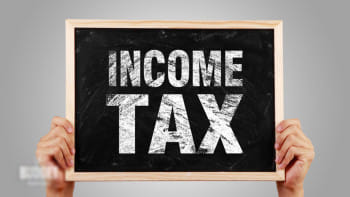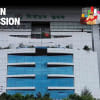Budget lacks structural changes: CPD

The proposed budget lacks structural changes while a few positive steps have been taken in isolation, said the Centre for Policy Dialogue (CPD) in its immediate reaction on the proposed budget.
Some good steps have been taken in isolation, but no holistic structural change is visible in the proposed budget, Fahmida Khatun, executive director of the CPD, told a briefing at its office in Dhaka today.
It seems that the measures are not aligned with the budget's main philosophy of building a discrimination-free society, she said.
The CPD said the finance adviser presented the budget with a focus on the current economic crisis—high inflation, stagnation in investment, lack of employment opportunities, and overall low revenue collection.
While much attention was given to the size of the budget, the revenue target has actually been increased by 8.9 percent to Tk 564,000 crore, it said.
This is a significant jump, especially when compared to recent revenue collection trends. So, it is not accurate to say that the budget size is too small, it said.
"If we look at the Annual Development Programme (ADP), it has been reduced by 13.2 percent compared to FY2025. Allocations have been cut in 13 out of 15 sectors," said Khatun.
But the most concerning issue is that in three crucial sectors—education, health, and agriculture—the allocation has been reduced in the ADP. The reduction in agriculture is especially critical due to its direct link to food security, she said.
Infrastructure—particularly transport and communication—has received logical allocations, said the CPD.
The think tank welcomed the proposal to increase the tax-free income limit to Tk 375,000. However, considering that inflation has stayed above 9 percent for the past three years, this is not a significant jump, it said.
It also praised the move to set the tax-free income limit at Tk 5.25 lakh for those officially recognised as "July Warrior".
Due to changes in the tax slabs, lower-middle-income people will have to pay higher tax rates, while high-income groups will not see an increase—reflecting a form of discrimination, it said.
Duties have been rationalised. However, some industries may come under pressure amid high inflation. As Bangladesh graduates from the least developed country (LDC) category, it must focus on tariff rationalisation and gradual reduction, said the CPD.
"To combat the impact, the cost of doing business must come down through the reduction of the costs of energy, electricity, and loans," it said.
A surprising issue is that the revenue-GDP ratio target was set at just 10.5 percent in the medium-term macroeconomic policy statement—for the year 2035. For the upcoming fiscal year, the target is only 9 percent, it said.
"What kind of proposition is it that the ratio will reach 10.5 percent a decade from now, when we're expected to become a developing country? This reflects a weakening of ambition. How can we ensure development with such low expectations?" said the CPD.
Bringing e-commerce under the tax net and allocating Tk 5,040 crore for public-private partnership (PPP) investment were seen as positive steps, it said.
However, the CPD stressed the need for faster implementation from the government side and better utilisation of the PPP funds.
It also welcomed the allocation of Tk 1,000 crore for women entrepreneurs.
The budget also retains a provision for whitening black money, although the tax rate on such declarations has been increased, it said.
"This provision undermines transparent and honest, regular taxpayers. It demoralises them," said Khatun.
The CPD pointed out that allocations for social safety nets remain insufficient.

 For all latest news, follow The Daily Star's Google News channel.
For all latest news, follow The Daily Star's Google News channel. 










Comments